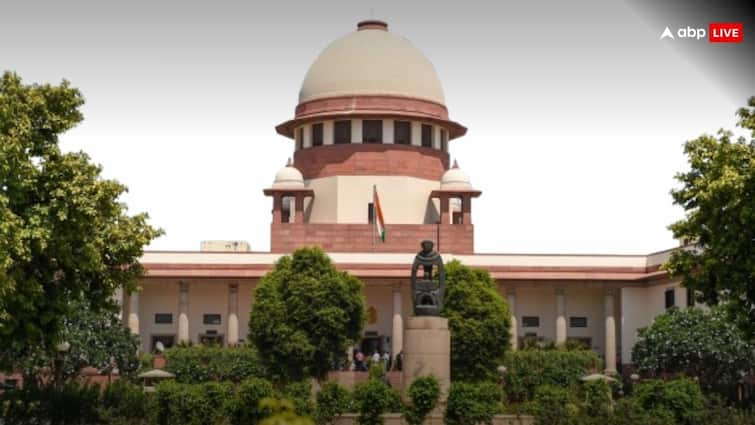trending
Arnesh Kumar vs State of Bihar Guidelines, Guidelines on Supreme Court arrest, Haryana Police Supreme Court Case, Police, Police Accountability in India, Police Custody Constitutional Safeguards, Police guidelines, Sc directs dgps on arrest procedus, Sc on police high-handedness, Sc ruling on arrest norms, Somnath vs state of maharashtra judgment, Supreme Court, Supreme Court Breaking, Supreme Court latest news, Supreme Court News, Supreme Court Police Arrest Guidelines
mohitmittal55555@gmail.com
0 Comments
supreme court issues arrest guidelines to all states police says police can not exceed limits ann
Supreme Court to DGPS All States: The Supreme Court has warned the police of all the states not to take action against the people against the people. The Supreme Court has said this while settling the case of arresting a person and allegedly assaulting him in custody for a quarrel with his neighbor. In this case, the court had asked the DGP of Haryana to appear personally.
A bench of Justices Ahsanuddin Amanullah and Prashant Kumar Mishra expressed displeasure that despite many decisions of the court, the police arrests against the rules of the people across the country. The court said that the police should avoid showing people the bullying of their strength. In future, the Supreme Court will take such activities seriously. Offering officers will be punished.
Explain to DGP policemen of all states
The Supreme Court has ordered its registry to send copies of the decision of the Somnath vs Maharashtra government of 2023 to all the states and union territories along with this order (Vijay Pal Yadav vs Mamta Singh and others). The court has said that the DGPs of the states should explain to their officers to walk according to the rules.
What was the decision of Somnath vs Maharashtra government?
It should be noted that in the case in which Somnath vs Maharashtra government came to Somnath vs. Maharashtra government, the police had garlanded one of the stolen garlands and roamed the road in a semi -grade state. Even then, the court had expressed strong displeasure over the disregard of the 1996 ‘DK Basu vs West Bengal Government’ decision and reminded the police of the rules. The DK Basu judgment had clarified the rules related to arrest and inquiry. The arrested person was also clearly refused to torture in custody.
Referring to the decision of ‘Arnash Kumar vs Bihar Government’
In its latest order, the Supreme Court has also instructed the judges of the police and the lower court to strictly follow the ‘Arnesh Kumar vs Bihar Government’ decision. It was said in that decision that in cases of punishment less than 7 years, there should be arrest in the necessary situations. The accused should be first given notice of Section 41 of CRPC. If he cooperates in the inquiry, he should not be arrested. Before arrest, the reasons should be recorded in writing, stating his need.
Share this content:

Post Comment Cancel reply